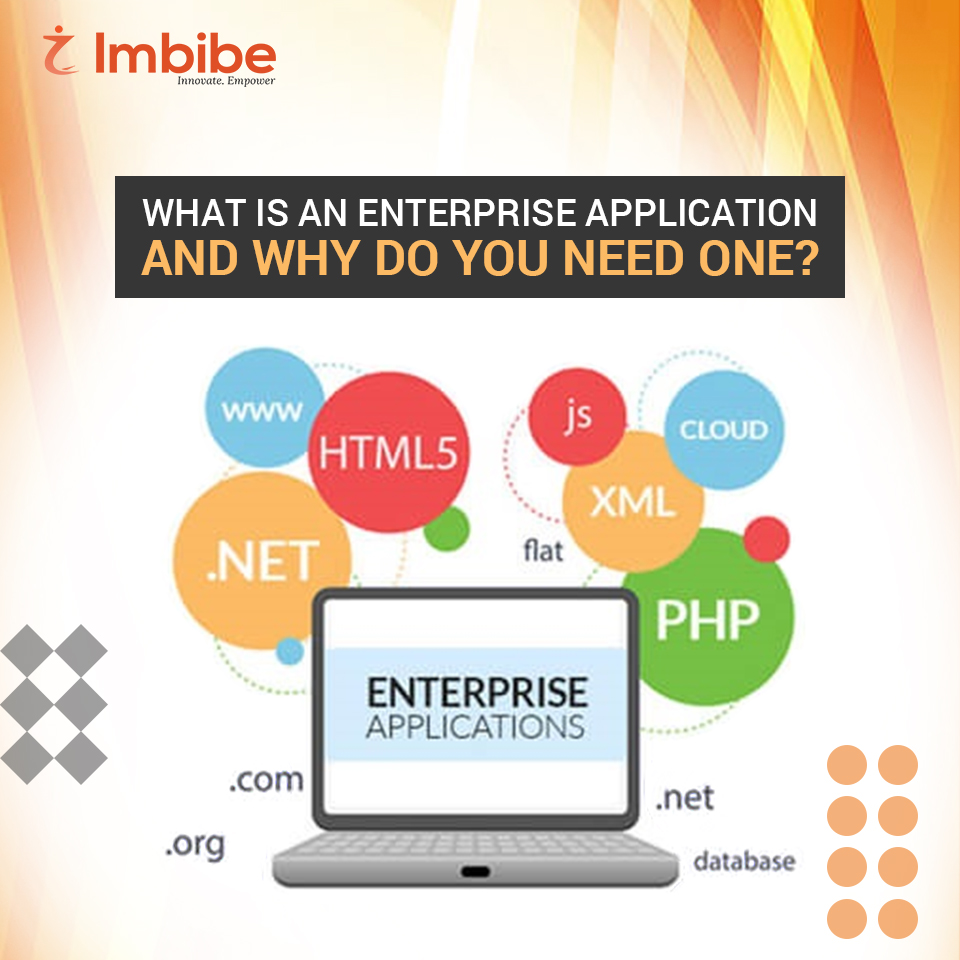We certainly don’t live in the stone age…wait, that’s a bit extreme; let’s say we are no longer in the late 1990s or early 2000s where we don’t even recognize the term “app” right?
As far as we know, the arrival of sophisticated smartphones and tablets over the last decade has made people more familiar with emerging technologies. Even terms like applications, cloud computing, intranet, etc., are no longer difficult to understand.
But when it comes to enterprise applications, it is not that people are unaware of them, rather they want to know what makes them different from regular applications and what they are used for.
So, let’s find out first what is an enterprise application, and why do you need one?

What is Enterprise Application?
Enterprise applications are computer programs used by large organizations. They are used to streamline business processes, and they provide valuable information to the entire organization.
An enterprise application refers to a software platform that is too large and complicated to be used by an individual or small business. Examples of enterprise applications include ERP, CRM, SCM, SRM, and e-Commerce applications.
Enterprise Applications are developed by using various techniques, frameworks, and programming languages. They consist of different modules like business logic, data management, web services, and SOA (service-oriented architecture).
Imbibe takes pride in providing top-notch enterprise application development services as well as customized enterprise application software to clients from all over the world.
Why Do You Need One?
Enterprise apps support growing businesses in many ways. For any enterprise that strives to fully digitalize, enterprise application integration is an essential tool. A well-designed enterprise application can process large amounts of data, facilitate management, and minimize bureaucracy.
Enterprise apps enhance customer interactions by enabling them to access and purchase digital products in just a few clicks.
By using enterprise data apps, businesses can uncover and leverage competitive advantages, new market opportunities, and much more – there is no end to the potential.
With real-time data, businesses can customize the KPIs they wish to see and the way they want to present information, enhancing their ability to act.
Basic Difference between Web Application and Enterprise Application
Enterprise application is a set-up of projects, while a web application is a piece of programming.
Web applications are easier to implement, but they become prone to security flaws and have limited interoperability. Web applications are accessed using an Internet browser over the web.
Enterprise applications are enormous scope programming. It tends to a whole organization’s requirements rather than a person. It is huge and complex, containing many cycles and capacities in comparison to web applications.
Conclusion
Incorporating enterprise applications into digital transformation is not an option but rather a necessity. But it does not mean every company must integrate every type of enterprise application. It has to solve a specific business problem.
Imbibe is a leading IT consulting firm providing Enterprise Technology Consulting Services. We help organizations leverage IT to improve business performance by aligning technology with business strategy.
Feel free to reach us today!